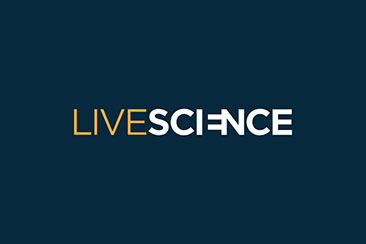Scientists find out how the epic deep sea migration of a tiny animal is storing planet-warming carbon.
Read MoreNews
This could rewrite the disease timeline.
Read MoreThis is dangerous for everyone.
Read MoreUnderstanding randomness is crucial in many fields. From computer science and engineering to cryptography and weather forecasting, studying and interpreting randomness helps us simulate real-world phenomena, design algorithms and predict outcomes in uncertain situations.
Read MoreWhile recent studies have shown climate change will cut crop production, there has been less research into its impacts on livestock.
Read MoreFor years, scientists have debated whether a giant thick ice shelf once covered the entire Arctic Ocean during the coldest ice ages. Now, a new study published in Science Advances challenges this idea as the research team found no evidence for the presence of a massive ~1km ice shelf. Instead, the Arctic Ocean appears to have been covered by seasonal sea ice—leaving open water and life-sustaining conditions even during the harshest periods of cold periods during the last 750,000 years.
Read MoreImagine the magnificent glaciers of Greenland, the eternal snow of the Tibetan high mountains, and the permanently ice-cold groundwater in Finland. As cold and beautiful as these are, for the structural biologist Kirill Kovalev, they are more importantly home to unusual molecules that could control brain cells' activity.
Read MoreThis robust and lightweight machine is a fantastic option for coding on the go, especially thanks to its phenomenal battery life.
Read MoreA 33-year-old Chinese man who showed up at the emergency room with severe abdominal pain turned out to have a foot-long live eel in his abdominal cavity. Yesterday, Chinese newspaper Huaihua Daily reported the unusual case of a Hunan man who showed up at the First Affiliated Hospital of Hunan Medical University with a pale […]The post Doctors Find Live Eel Swimming in Man’s Abdominal Cavity first appeared on Oddity Central - Collecting Oddities.
Read MoreAn 8-year-old boy in Thailand’s Uttaradit Province, who had been neglected for years by his drug-addicted mother, spent most of his time with dogs and started communicating by barking. Paveena Hongsakul of the Foundation for Children and Women learned about an 8-year-old boy in a drug-infested’ red zone of Uttaradit Province who had been neglected […]The post Boy Neglected by Family Spends Time with Dogs and Communicates by Barking first appeared on Oddity Central - Collecting Oddities.
Read MoreA new method for chemically altering human urine could be used for producing medical implants and construction materials, scientists claim.
Read MoreThe 300,000 year-old tools show that hominins in East Asia made planned foraging trips to lakeshores and designed instruments for specific purposes.
Read MoreThe health risks are stark.
Read MoreWoman Files Complaint Against Husband for Making Her Do Chores Instead of Spending Time on Instagram
Indian police recently reported the interesting case of Nisha, a young woman who filed a complaint against her husband, claiming that his asking her to spend less time on social media had caused her to lose followers. The bizarre marital dispute began when the woman’s husband, identified only as Vijendra, suggested that she should spend […]The post Woman Files Complaint Against Husband for Making Her Do Chores Instead of Spending Time on Instagram first appeared on Oddity Central - Collecting Oddities.
Read MoreNASA astronaut Nichole Ayers captured an electrifying image of a giant lightning "sprite" shooting up over Mexico and southern U.S. states. The red "jellyfish" could help researchers learn more about this rare phenomenon.
Read MoreThe excellent Garmin Forerunner 255 is now 43% off at Amazon, and the cheapest it has ever been.
Read MoreUniversity of Sydney researchers have harnessed human-made lightning to develop a more efficient method of generating ammonia—one of the world's most important chemicals. Ammonia is also the main ingredient of fertilizers that account for almost half of all global food production.
Read MoreBy using a genetic technique developed at UT Southwestern Medical Center that forces cells to rid themselves of mitochondria, researchers are gaining new insights into the function of these critical organelles. Their findings, published in Cell, add to fundamental knowledge about the role of mitochondria in cells and evolution and could eventually lead to new treatments for patients with mitochondrial diseases such as Leigh syndrome and Kearns-Sayre syndrome, which can affect numerous organ systems.
Read MoreTest your knowledge on all things science with our weekly, free crossword puzzle!
Read MoreRice is difficult to grow in the Pacific, so how did it end up in a cave? Archaeologists reveal the hidden history of this ancient and well-travelled grain.
Read MoreThe snow and ice accumulated last winter by Switzerland's glaciers has already melted away, a monitoring service said, with Friday marking the alarming second-earliest arrival on record of the tipping point known as glacier loss day.
Read MoreA first on the red planet!
Read MoreScientists say that the construction of a vast new radio telescope array in the Utah desert — known as the Deep Synoptic Array 2000 — could uncover some of the biggest outstanding mysteries in astronomy.
Read MoreA study by Dr. Martin Ebert and Dr. Martina Kölbl-Ebert examined the remains of some 4,200 Tharsis fossil specimens. They found that some of these fish, all of which were subadults, would occasionally attempt to or accidentally swallow belemnites (squid-like cephalopods), leading to the Tharsis choking to death.
Read More




